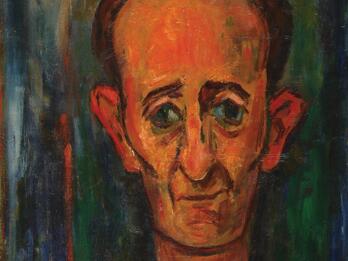Charles Reznikoff
Born in Brooklyn, New York, to East European immigrant parents, Charles Reznikoff is now regarded as a central figure of American poetic modernism and particularly the movement named, by fellow writer Louis Zukofsky, Objectivism. After receiving a law degree from New York University in 1915, Reznikoff practiced law for a short time. When the United States entered World War I, he enrolled in officer training school but devoted himself thereafter to writing, though economic need forced him intermittently to take other jobs. One of these, summarizing turn-of-the-century court records in the 1930s for a legal publication, served as the basis for what would ultimately become his most famous work, the book-length poem, Testimony (1934, 1978–1979). Epitomizing the Objectivist mode, Testimony uses the language of court records to recapture terrible social suffering, including the murder by a lynch-mob of a Black man for looking into the window of a white woman’s home. Although Reznikoff had emerged as a distinctive voice in American letters, he would not receive recognition and success outside narrow modernist circles until much later. He typeset and printed his own first two volumes of verse, Rhythms (1918) and Rhythms II (1919). Afterward, he wrote fiction and drama but remained focused above all on poetry, at times addressing philosophical issues, at others addressing with great clarity everyday forms of human and social suffering. He was married to the Zionist activist Marie Syrkin, the daughter of Nachman Syrkin, founder of the Labor Zionist movement.


